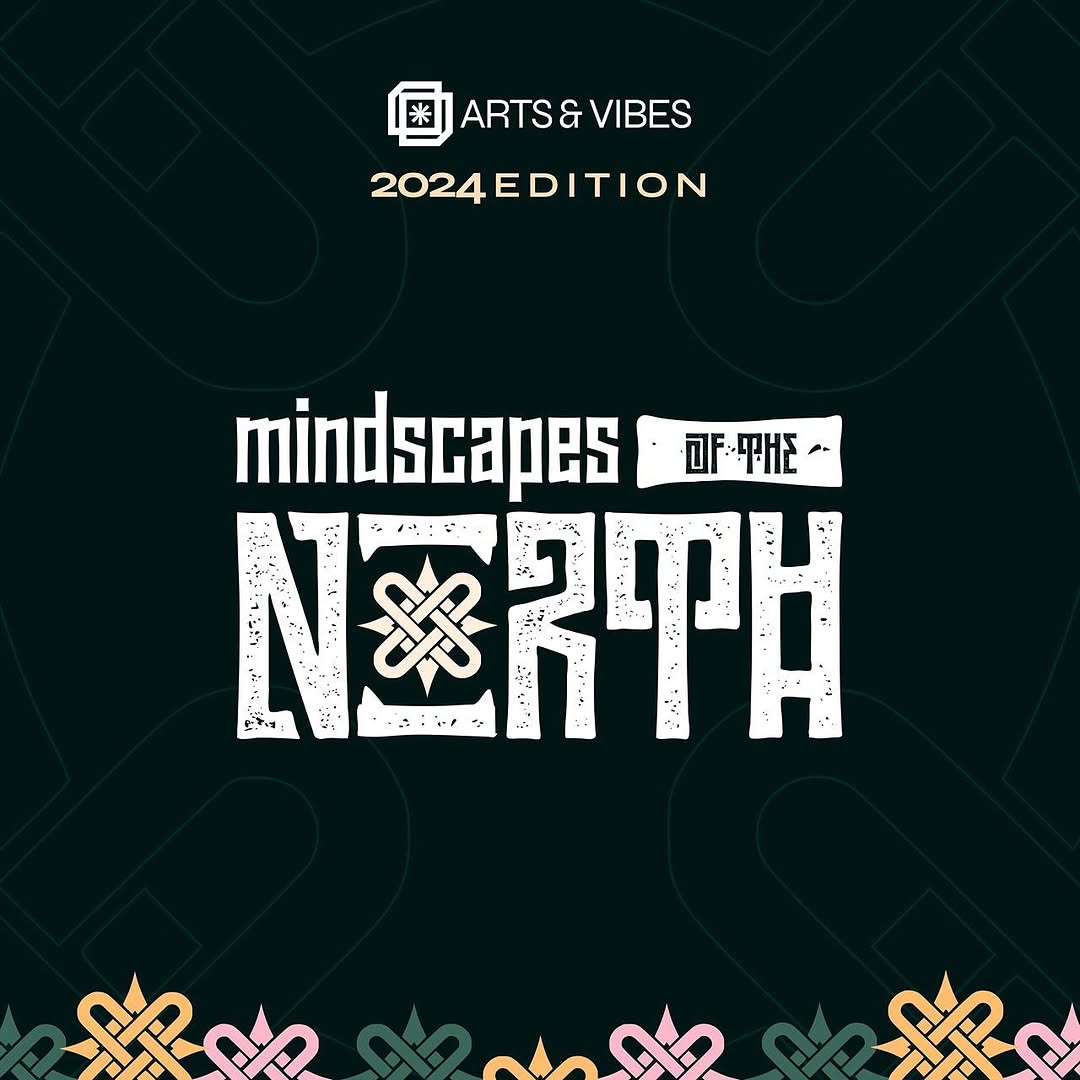by Ifeoluwa Olutayo

Expression is a beautiful thing; the raging lights of an overpopulated city, its smells, and clashes are endearing, but they cannot represent the views of such a diverse country as ours.
In the last few months, I’ve been able, by virtue of various projects and personal considerations, to travel to cities outside of the coastal metropolis that was the capital of Nigeria up until December 12, 1991, and I’ve found a world of artistic expression, unique to the region’s gives and takes.
Even in Lagos, I was privileged to make a (very long) trip to the Yemisi Shyllon Museum situated at Pan Atlantic University, Lagos. The very talented curator Aisha Aliyu-Bima presented an exhibition titled “Arewa?” of many artists working in Northern Nigeria, including works by T.J. Benson, Jerry Buhari, and Williams Chechet (who was actually on the panel discussing the voices of the north at the event).
One of the goals of this exhibition was to bridge the gap in representation of the arts, which has always been focused on output from southern artists and wrong presented as a representation of all Nigerian art, and also challenge the preconceived notions of the North as this Hausa Monolith, with the diversity of artists and all the various ethnicities that make up Northern Nigeria.
In this way, it was also a dialogue between regions on how to present our heritage in this global village. It also, personally, sparked questions on how to begin to foster a connection and a recognised presence and expectation from all areas of the country as it comes to the arts that could be termed Nigerian.
It’s something that I as a filmmaker ruminate on, our increasing focus on Lagos (and in small parts, Abuja) as the source of most, if not all for some, of our country’s artistic expression. I have been for the most part, interested in connecting our regions via film, a travelling screening hub as my vehicle, seeking what voices lie in the cities I make stops at.
The appreciation for a good film or a compelling work of art is one thing I find that extends across the arbitrary lines drawn in the sand, of gender, of certain harmful ideologies, that are blockers for true unity. I have seen now, in the past few months, more and more curators putting together events that are platforms for a deeper understanding of our country’s unique cultures, looking past assumptions and stereotypes and their ways of speaking (read art).
This is why my experience at the Arts and Vibes 2024 edition was one that spoke to this. Arts and Vibes is a festival promoting Northern arts and culture, and the team’s focus for the year was Mindscapes of the North, a chance to engage not only with the arts from Northern Nigeria but with the artists and practitioners who lived in the region.
This helped a lot of the people present engage with the complexities of their lived experiences and helped to also provide real context to the beauty and daily lives of those in the region, wiping age-old stereotypes about the North (and the middle belt it seemed; A woman was corrected after implying that a presenter’s city of dwelling, Jos, was not a civilised city).
I was able to continue my journey northward in spirit, as we were able to discuss perception and its effects on our lives and how living situations shape our ideas of success. To be more precise, there were also discussions about our perception of education and the assumption that people in the North are not educated. A lot of people walked away with an understanding of how the colonial standards of “perfectly spoken and read” English have helped shape our understanding of education and sophistication and how these notions are wrong, with the devaluing of knowledge gained in the local dialects endemic to the regions.
I believe, just as we are so sure of ourselves in Lagos, we must begin to decentre ourselves and truly ask, what is our contribution to the whole? What is our addition to the representation of Nigeria as a culturally diverse place? How do we make sure that it begins to resonate in the Global village we are a part of? And how can we continue to bridge the gap between those voices not oft represented in wider conversations, like the voices of artists in the north of the country?
I believe with more events, workshops, festivals and exhibitions seeking to bring these marginalized voices to the fore, we’d find a truer representation of Nigerian expression, one that we can all appreciate and be proud of.